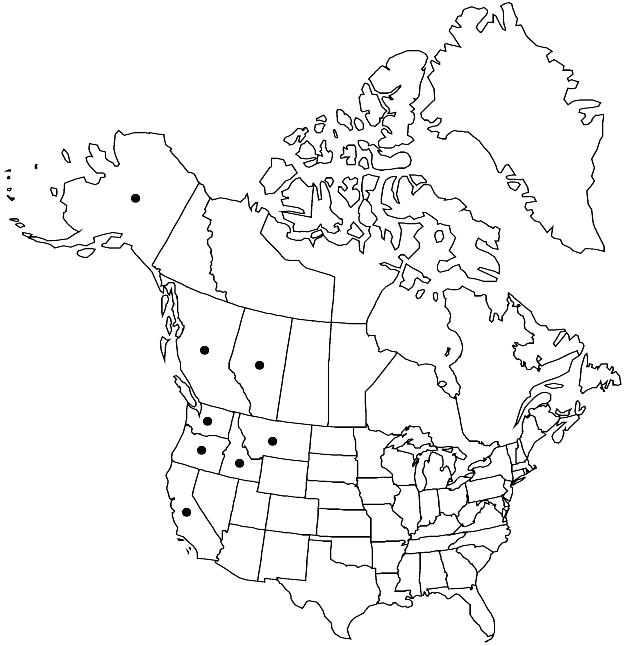Hypnum circinale
Musci Exot. 2: plate 107. 1819.
Plants small, light gray-green to golden green or dark green. Stems 3–5(–10+) cm, reddish brown, usually creeping, irregularly to regularly pinnate (occasionally 2-pinnate) or irregularly branched, branches 0.5–1 cm; hyalodermis absent, central strand absent; pseudoparaphyllia filamentous to lanceolate. Stem leaves falcate-secund to circinate, ovate- to triangular-lanceolate, gradually narrowed to apex, 1.5–2.2 × 0.5–0.7 mm; base slightly decurrent, often asymmetric with one side somewhat to strongly auriculate; margins plane, rarely slightly recurved on one side, serrulate; acumen long-attenuate; costa indistinct; alar cells few, subquadrate to rounded-triangular, region fairly well defined, 2–5 cells in marginal row; basal laminal cells broader than medial cells, golden yellow, walls porose; medial cells 60–80(–100) × 4–5 µm. Branch leaves 1.1–1.5 × 0.3–0.4 mm; margins more strongly serrulate. Sexual condition dioicous or phyllodioicous; inner perichaetial leaves oblong-lanceolate, margins serrulate distally, apex slender. Seta reddish, 0.6–1.5(–2) cm. Capsule oblique to horizontal, reddish, ovoid to ovoid-oblong, 0.8–1.5 × 0.5–0.7 mm; annulus 1- or 2-seriate; operculum conic-apiculate; endostome cilia 1 or 2.
Phenology: Capsules mature Jan–Feb.
Habitat: Lowland to subalpine coniferous forests, epiphytic on tree trunks, decaying logs, rock
Elevation: low to moderate elevations (0-1500 m)
Distribution

Alta., B.C., Alaska, Calif., Idaho, Mont., Oreg., Wash.
Discussion
Hypnum circinale is easily identified by the often asymmetric stem leaves bearing a long-attenuate serrulate point, with one side auriculate with usually pigmented alar cells, and the small sporangia that mature in January or February and produce sporophytes between September and December. Its closest affinities are with the east Asian H. tristoviride (Brotherus) Paris, which it strongly resembles in vegetative characters. In eastern North America, H. andoi resembles some forms of H. circinale in size and appearance, but the leaf bases, especially the nature of the alar cells and auriculation in H. circinale (absent in H. andoi) are reliable distinguishing features. The plants tend to be larger on humid logs than on tree trunks and rock and are closely affixed to the substrate by rhizoids; the pseudoparaphyllia are usually terminated by an elongate cell or 1-seriate tip of 2–4 cells; and the laminal cell walls are porose. When dioicous, the antheridial plants are similar to the archegonial; when phyllodioicous, the dwarf males are epiphytic on archegonial plants.
Selected References
None.